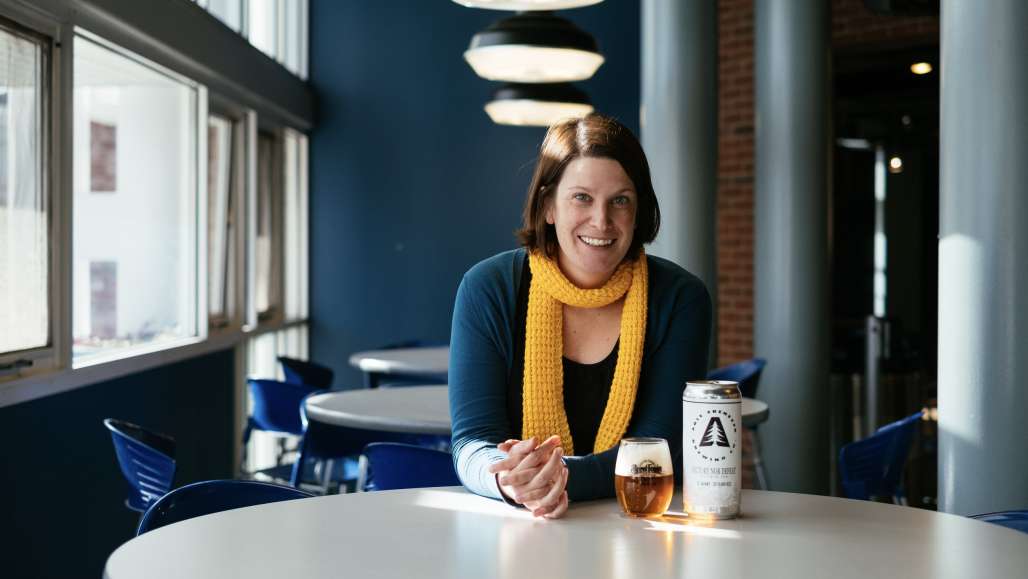Cultural Entrepreneurship: a craft beer study

It’s a hopping business, so to speak, one that’s entrepreneurial by nature and thriving in a number of cities across the United States. Craft beer production and the market for craft beer are growing exponentially – so much so that some brewers have found themselves writing new business plans every three months, notes Carolyn Keller, an assistant professor of sociology at Keene State. Keller and Professor Saran Ghatak, her colleague in the Sociology, Anthropology, and Criminal Justice Department, are studying the factors that go into the success of craft breweries.
With a $95,020 two-year grant from the Ewing Marion Kauffman Foundation, the researchers have traveled to seven US cities – Kalamazoo, Michigan, Asheville, North Carolina, Cincinnati, Ohio, Kansas City, Missouri, Burlington, Vermont, and two Portlands, Maine’s and Oregon’s. They talked with craft brewers in each city – over 40 in all.
“Our research question is really a broad one,” says Keller. “The question is how, in this post-industrial society, are these breweries able to succeed and really grow rapidly amidst economic turmoil? The way they’re growing is astronomical. Four or five years ago there were less than a thousand craft breweries, and now we’re at the 5,000 mark. We’re trying to explore what’s similar and what’s different across the different cultural contexts.”
For instance, Keller and Ghatak are interested in how people’s tastes in beer change. “How is it that in 10 years people went from drinking Bud Light and Miller Lite to drinking really different, strongly flavored things like IPAs and sours?” says Keller. Not to mention, How did a “people’s” beverage like beer become elite – or is craft beer elite, now that it’s in the mainstream?
They’ve learned a number of things so far. For one, craft brewers tend to work cooperatively – they see “big beer” as the competitor. So they help each other out with equipment and joint marketing ventures, and they send their customers to check out their fellow brewers’ offerings.
Keller and Ghatak are also discovering that location is critical in the craft beer industry, and it’s not just about setting up shop in a city known for trendiness. State and municipal regulations play a big part, too. For instance, some states allow breweries to have on-site pubs and some don’t; some allow pubs as long as they sell food as well as drink. In Missouri, breweries can’t sell their own products out of their manufacturing facility, but wineries can – a law that brewers get around by producing cider, too, which allows them to qualify as wineries because it involves fermenting fruit.
The interviewed brewers are mostly educated white males, many of whom had a previous career in a lucrative scientific field. Craftsmanship is important to them, and not just in making beer: they often do the woodwork in their breweries and assemble the fermentation tanks themselves. “This is very much about getting back to putting the labor process in your own hands,” says Keller. The most successful brewers are nimble, able to start a new product line when tastes change, and able to keep up when business doubles or triples in a matter of months.
The next step in the research is to talk to customers – craft beer drinkers – to learn more about them. With their research, the two Keene State professors hope to record the phenomenon of craft beer entrepreneurship, which thus far has been the subject of few studies. They also aim to reach an understanding of the barriers that make it harder for people to start craft breweries and the ways cities can bring in more brewers as well as other craftspeople.
When it comes to beer, these days, it’s all about options: IPAs, sours, lagers – which Keller notes are harder to make than ales but, with their lighter flavor profiles, are more drinkable.
“It’s the diversity that matters,” she says.





